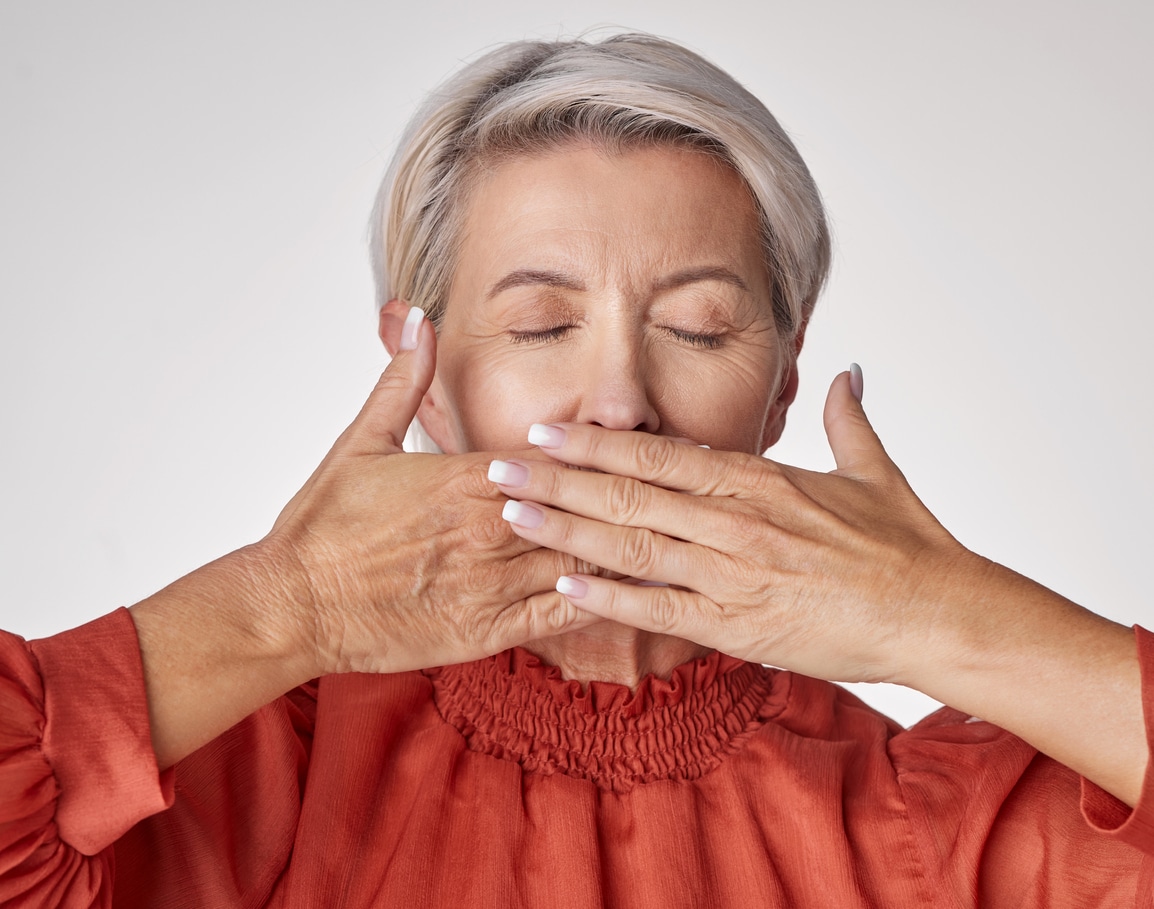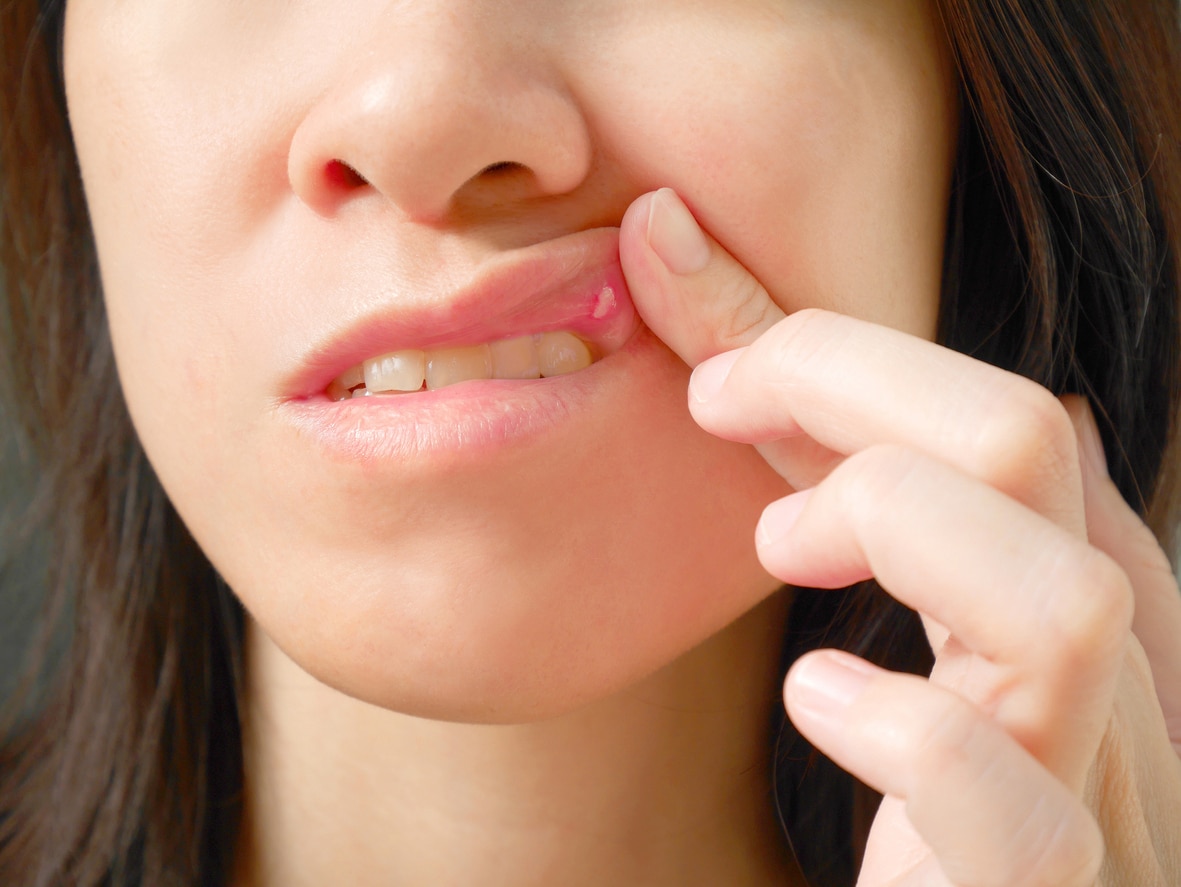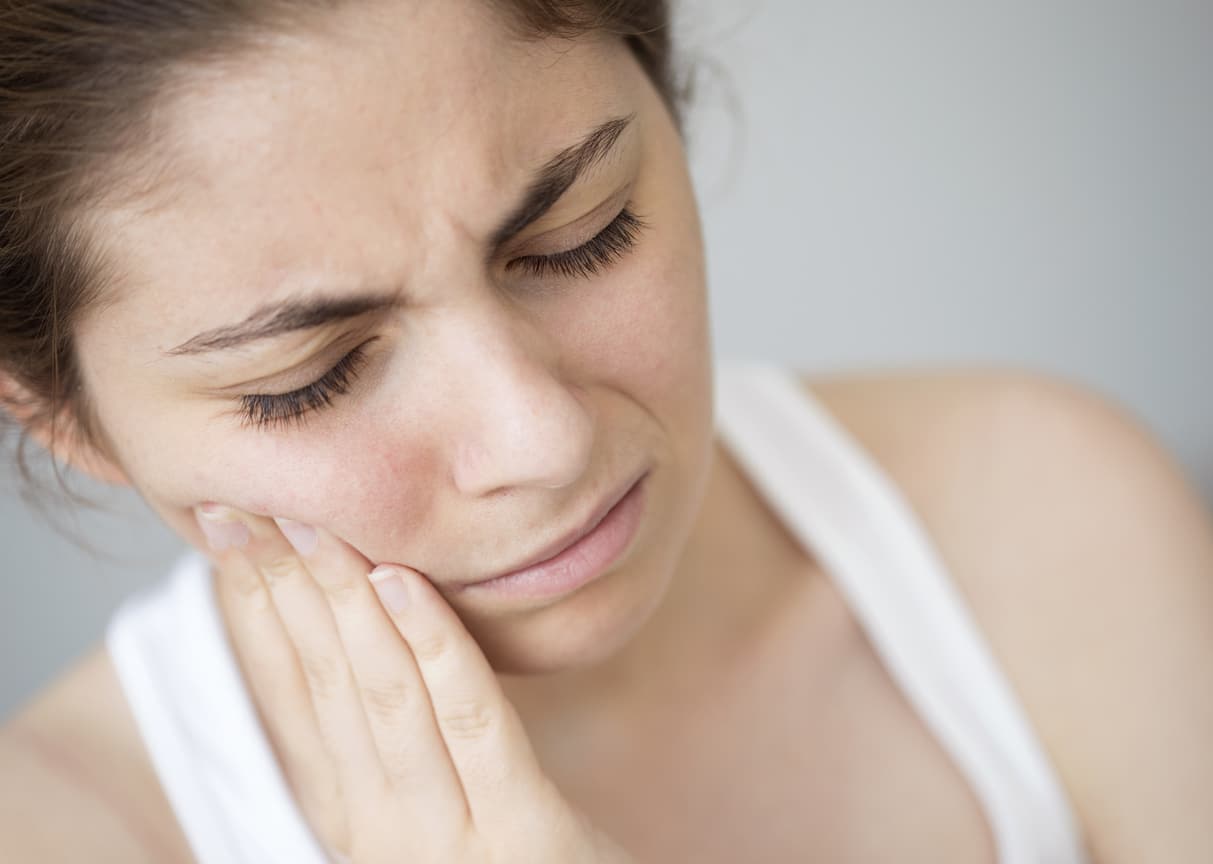An ulcer is defined as an open sore on a surface of the body, internal or external, caused by a break in the skin or a mucous membrane that fails to heal. Many people automatically think of the stomach when they hear the word ulcer, but ulcers can occur anywhere on or in the body. The mouth is particularly prone to insult and injury, and there are a variety of circumstances and conditions that can lead to ulceration in the mouth.
Ulcers can form when you burn your tongue on hot food or beverages, bite your cheek while chewing, or take certain anti-inflammatory medications. They can also develop due to bacterial or viral infections, allergic reactions, or a common condition called aphthous stomatitis, better known as canker sores. Fortunately, most mouth ulcers are minimally painful and heal quickly, often within just a few days. On very rare occasions, a mouth ulcer that refuses to heal may indicate something more serious. Non-healing or reoccurring mouth ulcers may point to vitamin deficiencies, serious infections, or even oral cancer.
Make an appointment to visit your doctor or dentist if:
- A sore in your mouth lasts longer than three weeks
- Excessive exhaustion develops
- It becomes more painful or swollen
- New blisters or sores form before the old ones heal
- Sores form right after starting a new medication
- Ulcers are accompanied by symptoms such as fever, drooling, a skin rash, or difficulty swallowing
- You have an already weakened immune system (for example, HIV, radiation therapy, or autoimmune disorder
How Stress and Exhaustion Factor In
Many conditions and circumstances can trigger ulcers in the mouth, from physical damage caused by burns, braces, or chewing, to genetic influences. Stress and exhaustion can trigger the formation of oral ulcers both directly and indirectly. Let’s look at how stress and exhaustion can influence some of the most commonly seen mouth ulcers.
Canker Sores
In most cases, the term canker sore refers to a condition called aphthous stomatitis, which affects somewhere between 10 and 20 percent of people. The condition causes small, rounded lesions that typically heal in 7-10 days without medical intervention. In most cases, once canker sores have developed, they reoccur. Most people with canker sores experience around 3-6 outbreaks per year. For a few individuals, the sores tend to be deeper and more painful. They also last longer, taking 10-14 days before healing completely.
Although the triggers for canker sore outbreaks are not fully understood, there are some trends that we have been able to identify. Hormonal changes, allergic reactions, and insufficient amounts of Vitamin B, folate, or iron have all been implicated in outbreaks, as have certain habits. People who smoke have a greater number of outbreaks, and they tend to be more on the severe side. Occurrences also happen more often in those experiencing outbreaks of inflammatory or autoimmune disorders. Not only does stress trigger or exacerbate most of these causes, but studies since the early twenty-first century have also shown a direct correlation between stress and the formation of canker sores.
Cold Sores
Another type of mouth ulcer is a cold sore. Cold sores are similar to canker sores in many ways. They are small, tend to heal quickly on their own, and tend to reoccur regularly. Cold sores, unlike canker sores, are caused by a specific virus, herpes simplex type 1. Stress doesn’t directly cause cold sores to appear, but both stress and exhaustion can make people more susceptible to infection in the first place. Once infected, the virus remains in the person’s system throughout their life, causing outbreaks due to certain triggers. Common cold sore triggers include:
- Catching a cold or flu virus
- Changes in temperature or humidity
- Emotional upset or stress
- Excessive sun exposure
- Fatigue
- Hormonal changes
- Spicy or acidic foods
- Trauma to the face
Ulcers Caused by Physical Trauma
Ulceration in the mouth is often caused by physical trauma. The mucous membranes are close to the teeth, and this puts them at risk of rubbing against sharp or uneven dental edges and of being bitten during normal activities, such as eating. People who are being worn down by stress and exhaustion are often distracted and may not be as careful nor as mindful of oral hygiene. These factors can increase the chances of ulcers forming.
Treatment
At Home
In most cases, sores in the mouth heal on their own without medical intervention, but there are some things we can do at home to reduce the pain and shorten their duration. For those who are especially prone to developing oral sores, these actions may even prevent an outbreak or two.
- Ask your dentist for wax to cover sharp edges on braces or other orthodontic devices.
- Avoid crunchy or hard foods
- Avoid hot drinks
- Avoid salty, spicy, or acidic foods or beverages
- Avoid touching them
- Be careful when chewing
- Don’t chew gum
- Employ stress management techniques
- Get adequate sleep
- Relieve pain with ice chips
- Maintain good oral hygiene (floss and brush regularly
- Rinse with baking soda and water
- Use a soft-bristled toothbrush
- Use toothpaste without sodium lauryl sulfate
- Wash your hands frequently
At the Doctor or Dentist
Advanced, painful, or lingering mouth ulcers should be addressed by either a doctor or a dentist. Not only will they be better able to determine why the wound isn’t healing, but they will also be able to offer treatments to help relieve symptoms. Corticosteroids are sometimes recommended in gel, spray, and tablet formulations. Prescription mouthwashes can often be helpful, especially if there is a bacterial component to the sores, and antibiotic and antiviral medications are occasionally prescribed.
Ulcerations frequently form in the mucous membranes of the mouth, whether due to an infection, an allergy, or a genetic predisposition. Most outbreaks are mild, resolving quickly without medical intervention, but some root causes need to be addressed by a medical professional. Those with a lingering, exceptionally painful, or frequently recurring mouth ulcers should make an appointment. Your dentist or your family physician can help diagnose and treat ulcers in the mouth.
Read Next:
A Healthy Heart Starts with a Healthy Mouth










